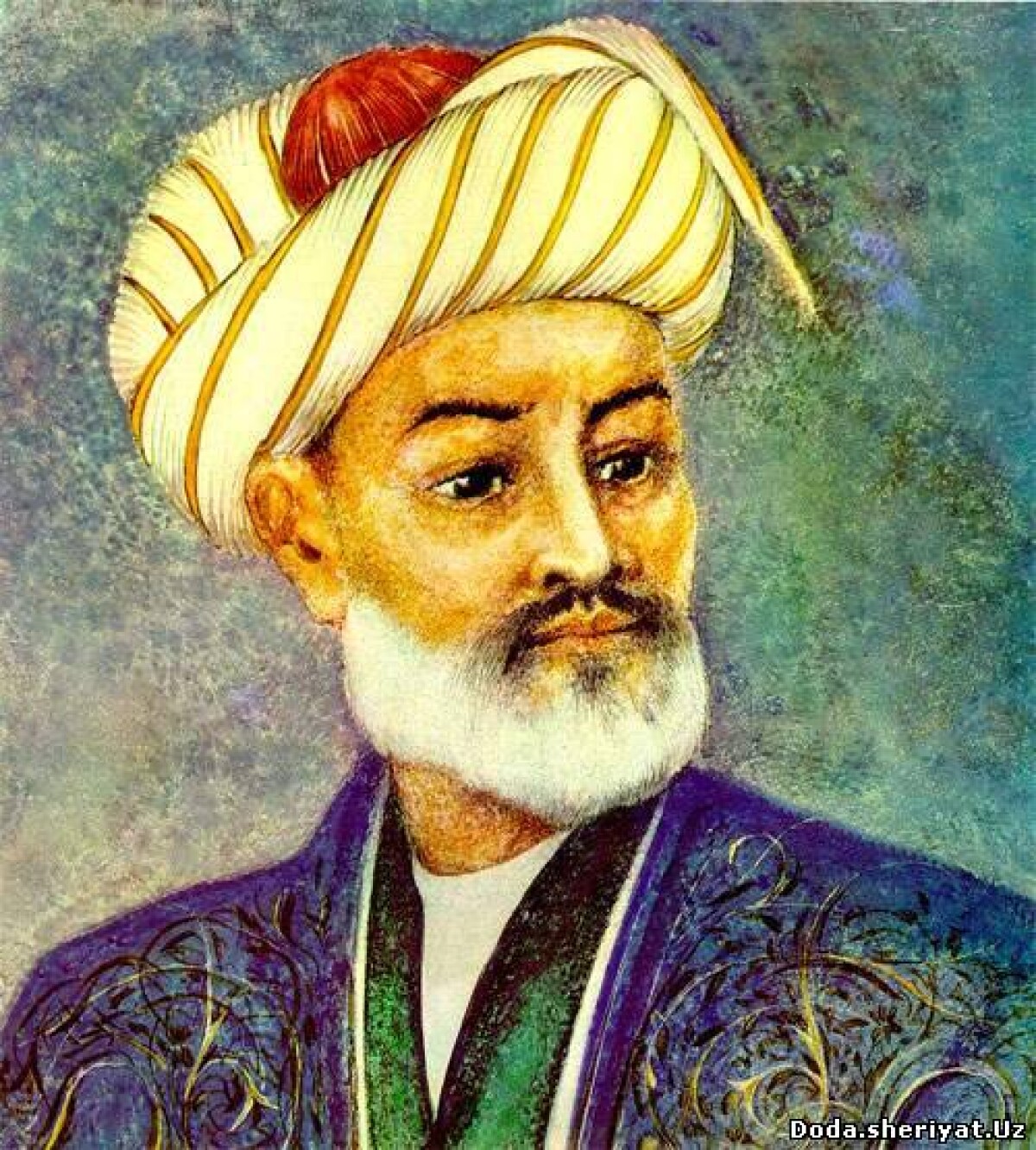Navoiy Alisher
Mīr 'Ali-Shir Nava'i (9 February 1441 – 3 January 1501), also known as Nizām-al-Din ʿAlī-Shīr Herawī (Chagatai-Turkic/Persian: نظام الدین على شير هروی) was a Central Asian poet, writer, politician, linguist, mystic, and painter. He was the greatest representative of Chagatai language literature.
Nava'i believed that the Turkic language was superior to Persian for literary purposes, and defended this belief in his work. He emphasized his belief in the richness, precision, and malleability of Turkic vocabulary as opposed to Persian.
Because of his distinguished Chagatai language poetry, Nava'i is considered by many throughout the Turkic-speaking world to be the founder of early Turkic literature. Many places and institutions in Central Asia are named after him.
Ali-Shir Nava'i was born in 1441 in Herat, which is now in north-western Afghanistan. During Ali-Shir's lifetime, Herat was ruled by the Timurid Empire and became one of the leading cultural and intellectual centres in the Muslim world. Ali-Shir belonged to the Chagatai amir (or Mīr in Persian) class of the Timurid elite. Ali-Shir's father, Ghiyāth ud-Din Kichkina (The Little), served as a high-ranking officer in the palace of Shāhrukh Mirzā, a ruler of Khorasan. His mother served as a prince's governess in the palace. Ghiyāth ud-Din Kichkina served as governor of Sabzawar at one time. He died while Ali-Shir was young, and another ruler of Khorasan, Babur Ibn-Baysunkur, adopted guardianship of the young man.
Ali-Shir was a schoolmate of Husayn Bayqarah who would later become the sultan of Khorasan. Ali-Shir's family was forced to flee Herat in 1447 after the death of Shāhrukh created an unstable political situation. His family returned to Khorasan after order was restored in the 1450s. In 1456, Ali-Shir and Bayqarah went to Mashhad with Ibn-Baysunkur. The following year Ibn-Baysunkur died and Ali-Shir and Bayqarah parted ways. While Bayqarah tried to establish political power, Ali-Shir pursued his studies in Mashhad, Herat, and Samarkand. After the death of Abu Sa'id Mirza in 1469, Husayn Bayqarah seized power in Herat. Consequently, Ali-Shir left Samarkand to join his service. Bayqarah ruled Khorasan almost uninterruptedly for forty years. Ali-Shir remained in the service of Bayqarah until his death on 3 January 1501. He was buried in Herat.
Ali-Shir Nava'i led an ascetic lifestyle, "never marrying or having concubines or children."
Ali-Shir served as a public administrator and adviser to his sultan, Husayn Bayqarah. He was also a builder who is reported to have founded, restored, or endowed some 370 mosques, madrasas, libraries, hospitals, caravanserais, and other educational, pious, and charitable institutions in Khorasan. In Herat, he was responsible for 40 caravanserais, 17 mosques, 10 mansions, nine bathhouses, nine bridges, and 20 pools.
Among Ali-Shir's most famous constructions were the mausoleum of the 13th-century mystical poet, Farid al-Din Attar, in Nishapur (north-eastern Iran) and the Khalasiya madrasa in Herat. He was one of the instrumental contributors to the architecture of Herat, which became, in René Grousset's words, "the Florence of what has justly been called the Timurid Renaissance". Moreover, he was a promoter and patron of scholarship and arts and letters, a musician, a composer, a calligrapher, a painter and sculptor, and such a celebrated writer that Bernard Lewis, a renowned historian of the Islamic world, called him "the Chaucer of the Turks".
Literary works
Under the pen name Nava'i, Ali-Shir was among the key writers who revolutionized the literary use of the Turkic languages. Nava'i himself wrote primarily in the Chagatai language and produced 30 works over a period of 30 years, during which Chagatai became accepted as a prestigious and well-respected literary language. Nava'i also wrote in Persian (under the pen name Fāni), and, to a much lesser degree, in Arabic.
Nava'i's best-known poems are found in his four diwans, or poetry collections, which total roughly 50,000 verses. Each part of the work corresponds to a different period of a person's life:
Ghara'ib al-Sighar (Wonders of Childhood)
Navadir al-Shabab (Rarities of Youth)
Bada'i' al-Wasat (Marvels of Middle Age)
Fawa'id al-Kibar (Benefits of Old Age)
To help other Turkic poets, Ali-Shir wrote technical works such as Mizan al-Awzan (The Measure of Meters), and a detailed treatise on poetical meters. He also crafted the monumental Majalis al-Nafais (Assemblies of Distinguished Men), a collection of over 450 biographical sketches of mostly contemporary poets. The collection is a gold mine of information about Timurid culture for modern historians.
Share:









